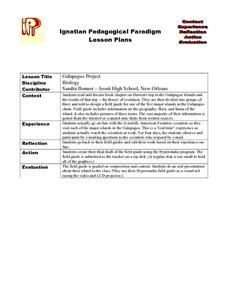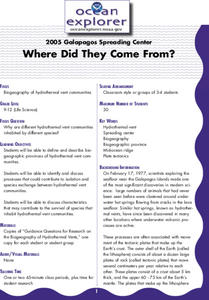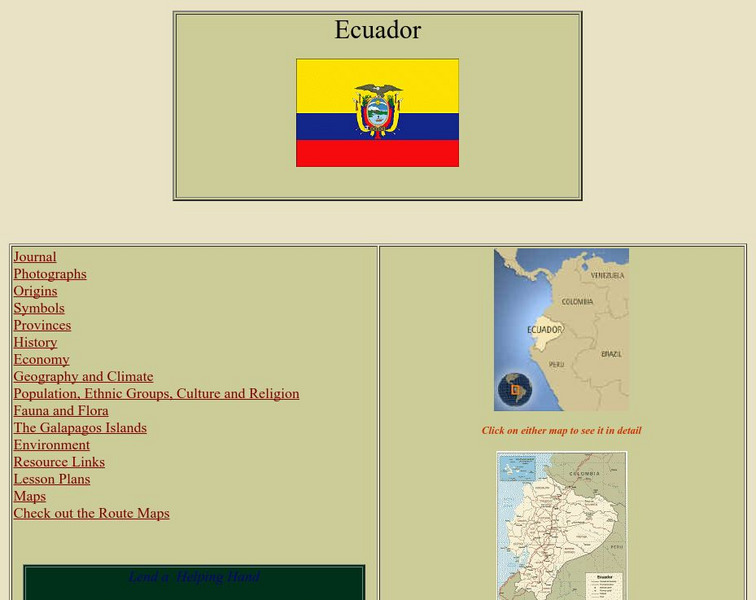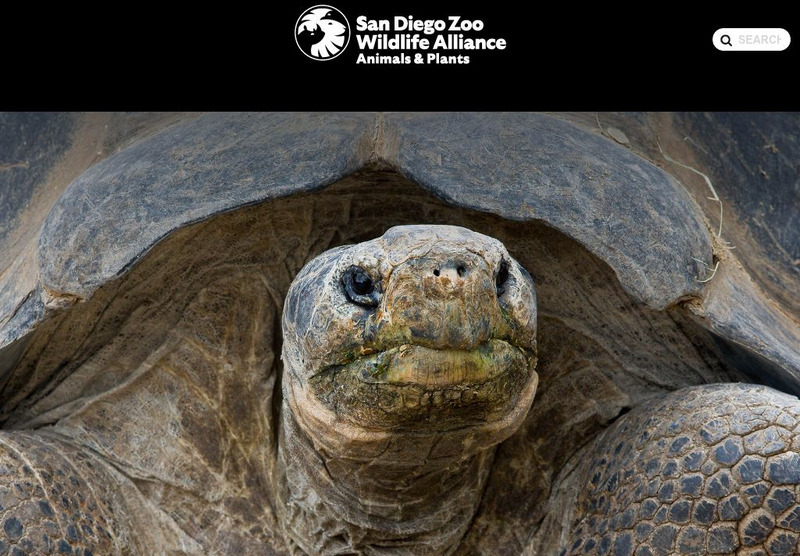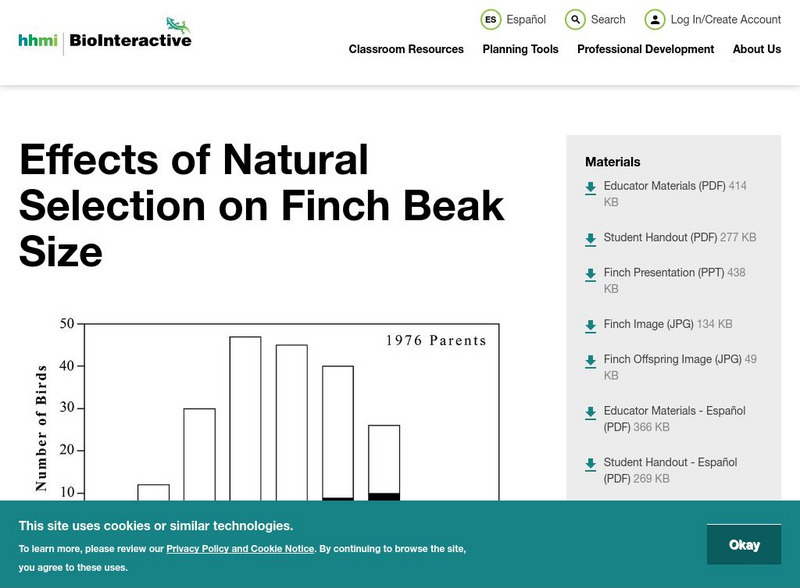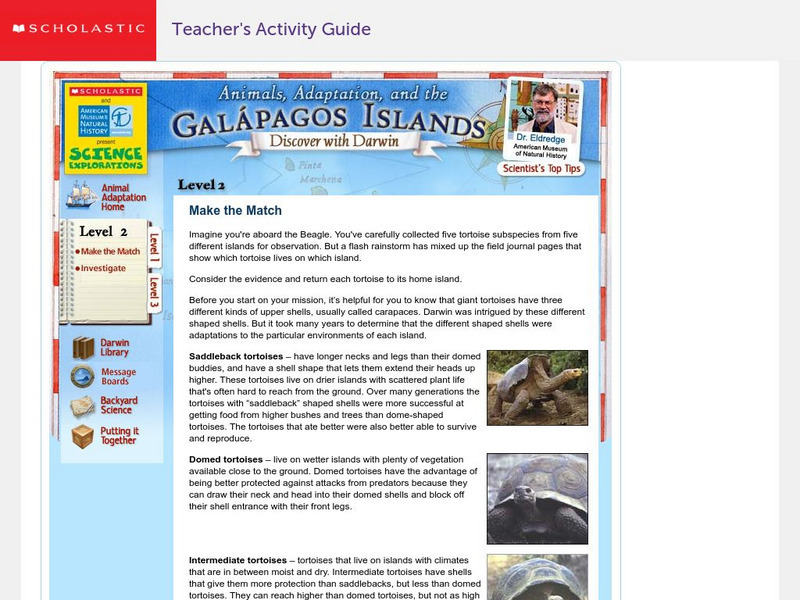Curated OER
The Evidence for Evolution
Summarize a unit on evolutionary evidence. Learners recount information about the fossil record, molecular record, homologous structures, convergent evolution. This worksheet provides plenty of room for students to write out responses,...
Curated OER
Evolution Study Guide
Thirty short-answer questions comprise this detailed review of evolution theory. Many of the questions ask scholars to define vocabulary. Because short answers are required, this activity will take some time to complete. You could give...
Curated OER
Dear Diary, I Found an Island Today...
In this Galapagos Islands worksheet, students research all they can about the islands and then create a diary entry that shows how an early explorer would have felt upon approaching the island.
Curated OER
The Galapagos Spreading Center
Students explore the basic concept of seafloor spreading. They describe the processes involved in creating new seafloor at a mid-ocean ridge. They investigate the Galapagos Spreading Center system.
Curated OER
Galapagos: Beyond Darwin
Students identify plants and animals endemic in their local area after learning about the plants and animals of the Galapagos Islands. For this plants and animals lesson plan, students create an endemic garden on school grounds.
Curated OER
Galapagos Islands
Middle schoolers study the science and geography related to the Galapagos Islands. In this ecosystem lesson, students locate the Galapagos Islands on a world map and discuss its significance in history. Middle schoolers complete a...
Curated OER
Galapagos Project
Learners explore Darwin's trip to the Galapagos Islands. In groups, students create a field guide for one of the five major islands in the Galapagos.
Curated OER
Where Did They Come From?
High schoolers explain hydrothermal vents and the process in which species and the hydrothermal vents become isolated.
Adventure Learning Foundation
Adventure Learning Foundation: Ecuador
Comprehensive reference tool with an abundance of country specific information about the South American country of Ecuador. Content covered includes photos, symbols, provinces, history, economy, geography, climate, population, culture,...
Cornell University
Cornell University: Galapagos Geology on the Web
Explore amazing pictures of the Galapagos Islands while learning about the geography and geology of these beautiful islands.
OneWorld UK
One World: Tiki Visits the Galapagos Islands
Aimed at the younger student, this wonderful sitehas plenty of photos and easy to read informationabout the amazing Galapagos Islands!
Smithsonian Institution
National Museum of Natural History: Expedition to Galapagos
Accompany scientists on an exciting trip to the Galapagos as they make a film on the islands for IMAX. Featured are a fantastic photo journal and video footage.
Other
Voyages: Scientific Circumnavigations: Dampier
Read about the unlikely journals and observations of William Dampier, an English pirate who sailed the Pacific, making landfall in the Philippines, East Indies, and Australia. See his maps, descriptions of the Pacific, and observations...
CK-12 Foundation
Ck 12: Episd: Darwin's Voyage of the Beagle
[Free Registration/Login may be required to access all resource tools.] A complete resource featuring the research Darwin did on his trip to the Galapagos Islands and discover a more current Farallon Island with a similar environment.
DOGO Media
Dogo News: Galapagos Island Giant Tortoises Saved
A report of research indicates that the giant saddleback tortoise of Espanola island in the Galapagos Islands have, through conservation efforts, begun to successfully return from the brink of extinction.
San Diego Zoo Global
San Diego Zoo: Galapagos Tortoise
This resource provides detailed information about the Galapagos tortoise, as well as several pictures.
Other
Galapagos Islands: Wildlife Gallery
Great photos and descriptions of the wildlife in the Galapagos Islands. There are also links to information on the natural history, environment, and geology of these islands.
PBS
Pbs Learning Media: Adaptive Radiation: Darwin's Finches
Finches on the Galapagos Islands have evolved to exploit almost every possible niche. This diagram shows the range of food sources available on the island and the different beak shapes adapted to exploit each of them. Includes background...
PBS
Pbs Nova: Explore the Galapagos
Using the interactive, multimedia map, see the Islands as they exist today and learn how they inspired Darwin, who pointed to them as the "origin of all my views." You can trace the trip of Darwin and hear from biologists at each spot....
Howard Hughes Medical Institute
Hhmi: Bio Interactive: Effects of Natural Selection on Finch Beak Size
In this activity, students examine research on finches on the island of Daphne Major in the Galapagos Islands. The depth of the finches' beaks was measured before and after a drought. This data is displayed in graphs and students are...
Khan Academy
Khan Academy: Activity: The Voyage of the Beagle
In this activity, you'll learn how to interpret images and maps in order to extract information about Darwin's trip to the Galapagos Islands. Links provided for a gallery of images and a worksheet.
Google
Google Maps: Galapagos Islands
Explore isolated volcanic islands. Charles Darwin's observations and collections of the Galapagos wildlife in 1835 contributed to his theory of evolution by natural selection. [7:08]
Scholastic
Scholastic: Science Explorations: Make the Match
See if you can match Galapagos Island Tortoises with the particular islands they live on. You can explore the islands to learn more about the habitats they contain.
American University
American University: Sea Cucumber Loss in the Galapagos
Describes the human interest in sea cucumbers, and the ecological influence of sea cucumbers on the Galapagos Islands.








